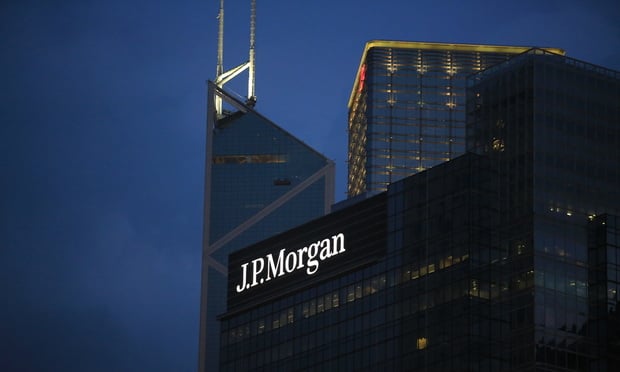 Vanguard's founder, JohnBogle promoted the idea that index funds such as the Vanguard 500can outperform most actively managed funds because they have lowermanagement fees and trading costs.
Vanguard's founder, JohnBogle promoted the idea that index funds such as the Vanguard 500can outperform most actively managed funds because they have lowermanagement fees and trading costs.
(Bloomberg) –John Bogle, who popularized the low-costindex-based mutual fund as founder of Vanguard Group Inc. and insistedthat most stock-picking money managers weren't worth the fees theycharged, has died. He was 89.
|He died Wednesday, according to the Philadelphia Inquirer,citing his family. The cause was cancer. He suffered the first ofat least six heart attacks at age 31. In 1967 he had a pacemakerinstalled, and in 1996 he received a heart transplant.
|By word and example, Bogle proselytized on behalf of patient,long-term investing in a diversified group of well-run companies.He focused his advocacy on index funds, those that buy and hold thebroadest mixes of stocks. He cautioned that the pursuit of quicktrades and short-term profits typically helped investment advisersmore than investors.
|“The way to wealth for those in the business is to persuadetheir clients, 'Don't just stand there. Do something,” he wrote in“The Little Book of Common Sense Investing” (2007). “But the way towealth for their clients in the aggregate is to follow the oppositemaxim: 'Don't do something. Just stand there.”
|Bogle's formula turned Vanguard into the largest U.S. manager of stockand bond funds.
|“He was a towering figure,” Burton Malkiel, a PrincetonUniversity economics professor and Vanguard board member since1977, said in an interview. “The mutual-funds industry isinfinitely better because of Jack Bogle.”
|Index funds
Bogle founded Pennsylvania-based Vanguard in 1974. Investorsattracted to its low fees helped the firm overtake American Funds,managed by Los Angeles-based Capital Group Inc., in 2008 as thebiggest U.S. stock and bond fund manager. Vanguard had about $5.3trillion in assets under management as of Sept. 30, 2018.
|Under Bogle, the company introduced the first retail indexmutual fund in 1976.
|Initially greeted with skepticism, the Vanguard 500 Index Fund,an unmanaged portfolio of the stocks represented in the Standard& Poor's 500 Index, had $266 billion in assets as of mid-2017,according to data compiled by Bloomberg.
|“It was lambasted as foolishness in the 1970s,” Dan Culloton,editor of the Vanguard Fund Family Report for Chicago-basedresearch company Morningstar Inc., said of the inception of indexfunds. “It's a cornerstone of investing now.”
|Another Vanguard index fund, Total Stock Market Index, had $514billion in assets as of mid-2017.
|Lower fees
Bogle promoted the idea that index funds such as the Vanguard500 can outperform most actively managed funds because they havelower management fees and trading costs.
|“Everybody really thought he was crazy, but he was tough enoughnot to care what everybody thought,” said Malkiel, author of “ARandom Walk Down Wall Street,” which shares Bogle's view thattrying to outsmart the market is a lost cause.
|By making Vanguard a cooperative, owned by the funds it ran,Bogle gave up the opportunity to amass a much larger personalfortune. He said the cooperative ownership, unique in the industry,eliminated what he saw as a fundamental conflict faced by publiclylisted money managers, which try to serve both corporateshareholders and fund investors.
|When Bogle retired from Vanguard on Dec. 31, 1999, the companyestablished the Bogle Financial Markets Research Center. He servedas president and continued to speak and write about the need forreforms.
|'Hell bent'
“The mutual-fund industry is now dominated by giant, publiclyheld financial conglomerates run by businessmen hell bent onearning a return on the firm's capital, not the return on thecapital invested by the fund shareholders,” Bogle said in a 2006speech at the Free Library of Philadelphia.
|He told Bloomberg Television in December 2008 that the U.S.government's bailouts of companies including American InternationalGroup Inc. and Citigroup Inc. had “deeply discredited” capitalism.At a February 2009 congressional hearing, he warned that the U.S.retirement system “is imperiled, headed for a serious train wreck.”Months later he filed a brief with the U.S. Supreme Court sidingwith investors who were challenging fees charged by fundmanagers.
|At industry events and other public appearances, Bogle oftendrew admirers while making fund company executives uncomfortable.Some fans called him “St. Jack of the mutual-fund industry.”
|“He stood up and said what he believed was right, and it costhim friendships in the fund industry,” Don Phillips, managingdirector at Morningstar, said in an interview.
|At a conference hosted by Morningstar in May 2009, Boglecriticized asset managers for paying themselves too much.“Compensation is totally, ridiculously out of control,” he said.“Money managers should return to stewardship and trusteeship.”
|Buffett's 'hero'
Billionaire investor Warren Buffett praised Bogle in his annualletter to Berkshire Hathaway Inc. shareholders in early 2017.
|“If a statue is ever erected to honor the person who has donethe most for American investors, the hands down choice should beJack Bogle,” Buffett wrote. “He has the satisfaction of knowingthat he helped millions of investors realize far better returns ontheir savings than they otherwise would have earned. He is a heroto them and to me.”
|John Clifton Bogle was born May 8, 1929, in Montclair, NewJersey, to William Bogle Jr. and the former Josephine Hipkins. Histwin brother, David, died in 1994.
|He attended high school at Blair Academy in Blairstown, NewJersey, on an academic scholarship. He later became a trustee andone of the school's largest donors.
|Bogle graduated magna cum laude from Princeton University in1951 with a degree in economics. He wrote his senior thesis on thenascent mutual-funds industry.
|Wellington Fund
He joined Philadelphia-based Wellington Management Co., whichoperated the Wellington Fund, the first so-called balanced mutualfund, containing both stocks and bonds. He quickly rose as amarketer and administrator and became the assistant to firm founderWalter Morgan. In 1967, he was promoted to president and chiefexecutive officer.
|He disagreed with Wellington partners over investment strategyand personnel matters during the next several years, and, inJanuary 1974, the Boston-based directors fired him.
|Bogle remained chairman of a separate oversight board of theWellington funds, whose members were loyal to him. He persuaded theboard to relieve Wellington Management of responsibility foradministering the funds — tasks that included shareholderrecord-keeping, fund accounting and preparing public filings —while continuing to oversee management and distribution. Mutualfunds, Bogle said, should be independent from the companies thatmanage their investments.
|Admiral Nelson
A student of British naval history, Bogle continued Wellington'sNapoleonic-Wars theme by naming the newly independent group offunds “Vanguard,” after the flagship of Admiral Horatio Nelson'sfleet in the Battle of the Nile in 1798. Bogle's office was stuffedwith decorations, from pillows and paintings to ship models andstatuettes, that commemorated Nelson and his fleet.
|In 1977, the fund's board took control of sales of the fundsfrom Wellington, which had distributed them through brokers.Vanguard funds were then sold directly to customers as no-loadshares, meaning investors bought them without paying brokercommissions.
|Vanguard introduced a money-market fund in 1975 and bond fundsin 1977, run by outside managers. In 1981, Vanguard hired its ownstaff of investment professionals to run those funds.Investment-management services were provided to the funds at cost,making the funds' expenses among the lowest in the industry.
|Management battle
Bogle remained Vanguard's CEO until 1996, when he handed thepost to his designated successor, John Brennan. Bogle remainedchairman of the board and began squabbling with Brennan over thecompany's growth plans, with Bogle questioning Brennan's plans tooffer discount brokerage services and develop a so-calledsupermarket for online mutual fund shopping.
|After reaching the mandatory retirement age of 70 in 2000, Bogleasked the Vanguard board to waive the rule for him. It refused, inwhat was seen as a decision cementing Brennan's authority at thefirm.
|Bogle's books on investing included “Enough: True Measures ofMoney, Business, and Life” published in 2008 and “The Battle forthe Soul of Capitalism” in 2005.
|Fortune Magazine named him one of four “Giants of the InvestmentIndustry of the 20th Century” in 1999. Time named him one of theworld's 100 most powerful and influential people in 2004.
|Bogle and his wife, the former Eve Sherrerd, had six children:Barbara, Jean, Nancy, Sandra, Andrew and John Jr., according toMarquis Who's Who. John Bogle Jr. is a limited partner at BogleInvestment Management, a Newton, Massachusetts, firm that followsan active stock picking approach.
|Copyright 2019 Bloomberg. All rightsreserved. This material may not be published, broadcast, rewritten,or redistributed.
Complete your profile to continue reading and get FREE access to BenefitsPRO, part of your ALM digital membership.
Your access to unlimited BenefitsPRO content isn’t changing.
Once you are an ALM digital member, you’ll receive:
- Critical BenefitsPRO information including cutting edge post-reform success strategies, access to educational webcasts and videos, resources from industry leaders, and informative Newsletters.
- Exclusive discounts on ALM, BenefitsPRO magazine and BenefitsPRO.com events
- Access to other award-winning ALM websites including ThinkAdvisor.com and Law.com
Already have an account? Sign In
© 2024 ALM Global, LLC, All Rights Reserved. Request academic re-use from www.copyright.com. All other uses, submit a request to [email protected]. For more information visit Asset & Logo Licensing.








